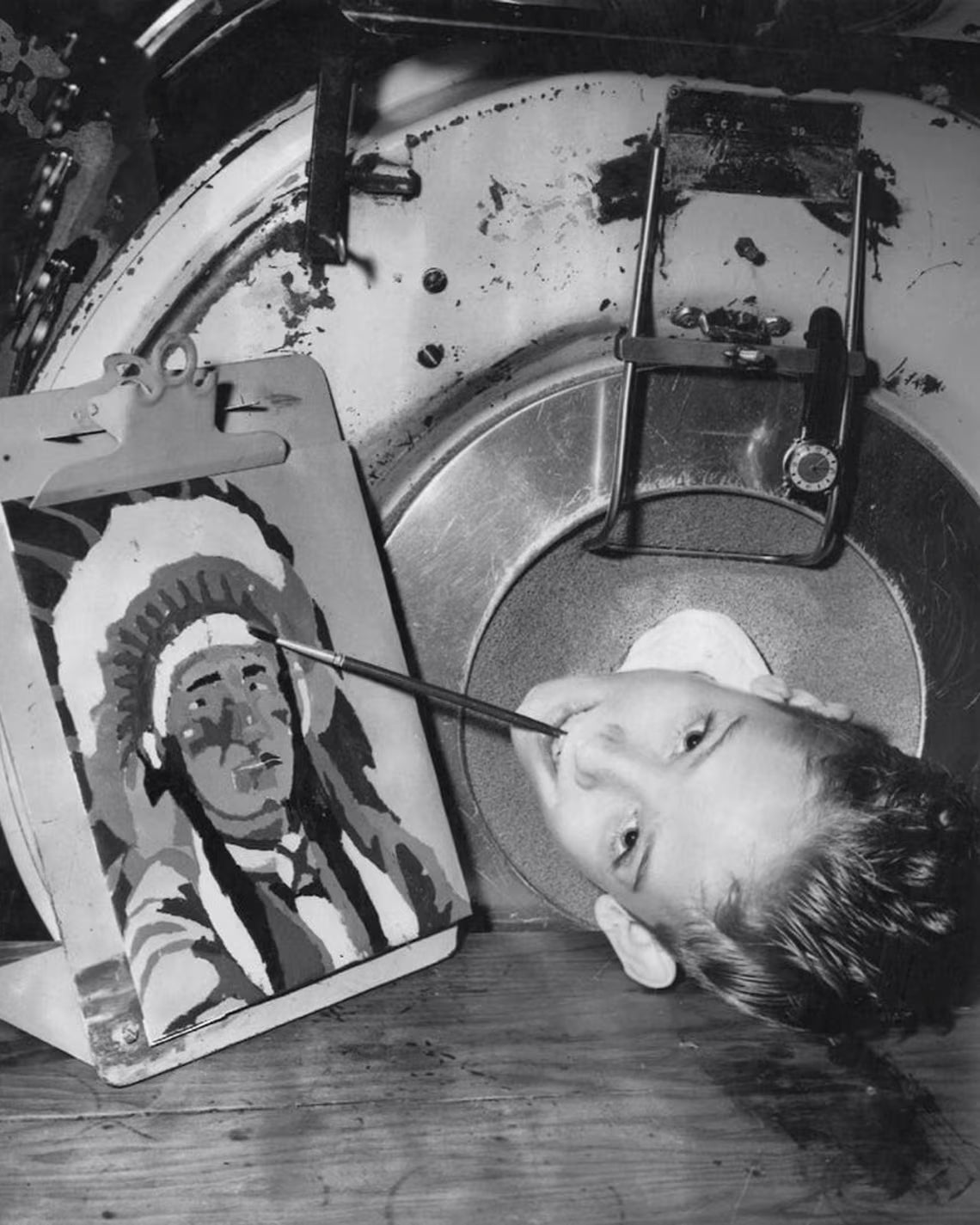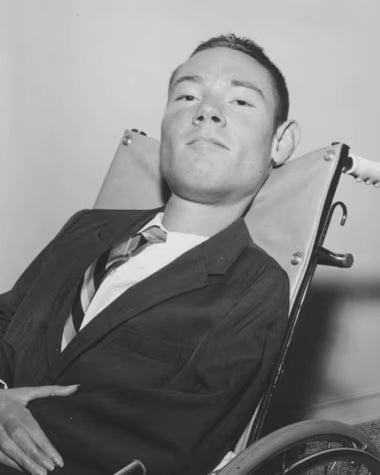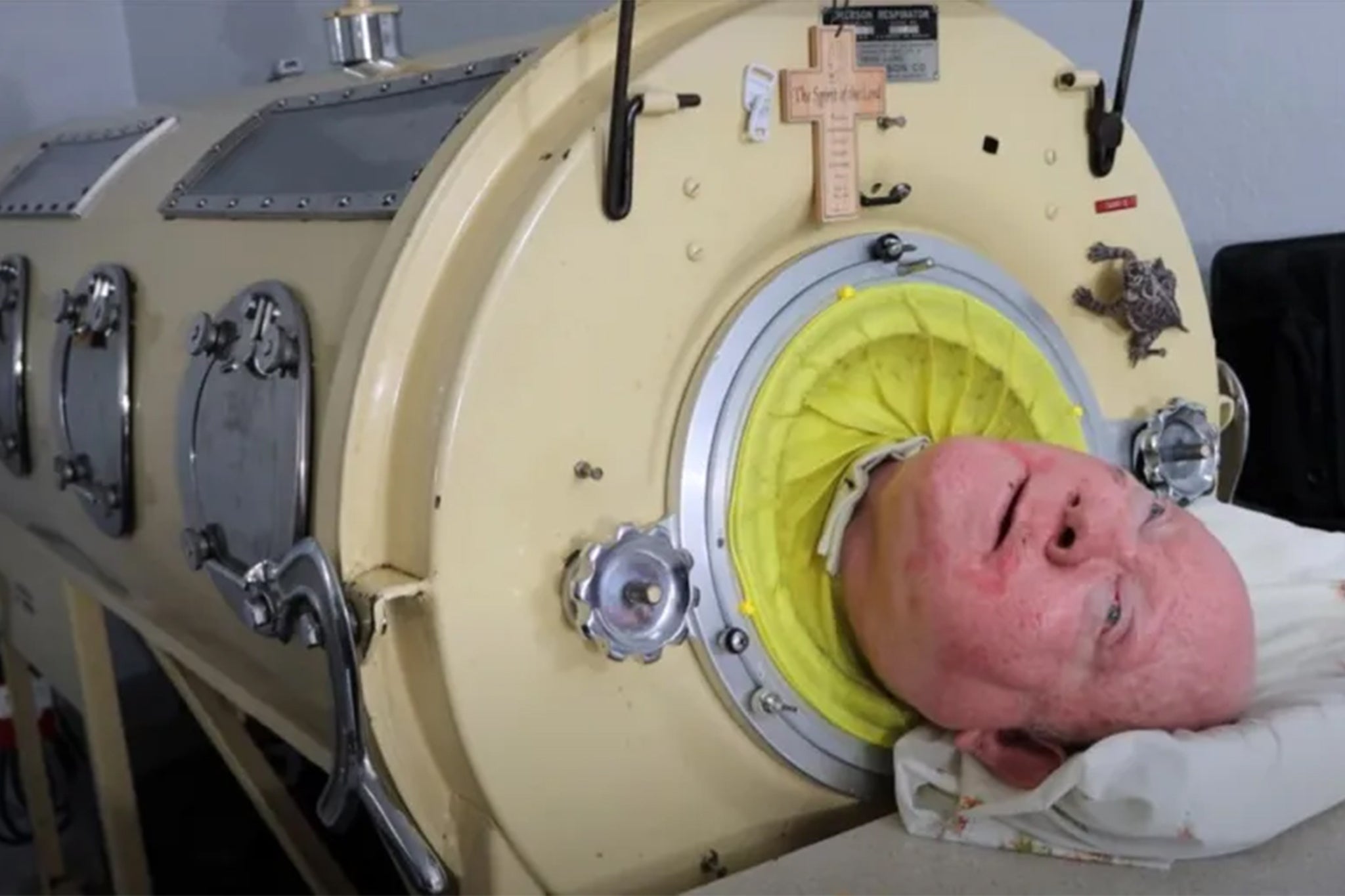The extraordinary life of man in iron lung who practiced as a lawyer and ‘loved wine and women’
Joe Middleton looks at the life of Paul Alexander, who spent 70 years in an iron lung before passing away at 78


Six-year-old Paul Alexander was enjoying playing outside with his brother when he started to feel unwell, with a pounding headache, aching neck and rapidly developing fever.
He trudged home for dinner, immediately alarming his mother, who was well aware of the polio outbreak that had ripped through his home state of Texas in 1952, causing social venues, such as bars and cinemas to shut in order to stem the spread.
The young man was ordered to take bed rest, but his condition worsened and he was rushed to hospital where doctors performed a life-saving tracheotomy on him to clear the congestion in his lungs following the infection.
When he regained consciousness he was encased in an iron lung that he would wear for the next seven decades, and despite the cumbersome machine, he would lead an extraordinary life, influencing millions of people.
After he woke up Paul could not walk or talk and was surrounded in the hospital by other children impacted by the virus, two years before the development of the Salk vaccine would lead to the eradication of the disease.
He spent 18 months in hospital before being moved home to be cared for by his parents, with doctors pessimistic about him living much longer due to the damage the polio had done to his body.

Despite what he would describe as the “big tin can” surrounding his body, Paul decided to forge on with his life and was homeschooled, eventually graduating from High School aged 21.
At the urging of his parents he began working with a physical therapist who promised him a puppy if he managed to breathe without the use of the iron lung for three minutes.
Gradually, he learned to “frog breathe”, a technique where you utilise the muscles in your mouth to force air into the lungs. He succeeded and named his puppy Ginger, The Guardian reported.
Being able to breathe without the use of his 300kg metal box would prove vital for his next challenge, moving into further education by accepting a place at Southern Methodist University to study finance and economics.
However, Paul yearned for more and would leave home - a prospect that filled his parents with dread - and transfer to study law at the University of Texas, in Austin.
According to IFLScience, he said: “When I transferred to the University of Texas, they were horrified to think that I was going to bring my iron lung down, but I did, and I put it in the dorm, and I lived in the dorm with my iron lung.
“I had a thousand friends before it was over with, who all wanted to find out what’s that guy downstairs with a head sticking out of a machine doing here.”

His arrival in Austin was not seamless as his caretaker did not turn up straight away, leading his classmates to help look after him, including taking him to lectures in a wheelchair.
He graduated in 1984 and passed the bar exam two years later before embarking on a hugely successful legal career.
Clients would walk into his office and marvel at the iron lung while they met with him to discuss their upcoming cases.
The person Paul knew best and knew him best was Kathy Gaines, his caretaker of almost 30 years, who took care of his every need, including brushing his teeth and cooking all his meals.
She told The Alcalde, a Texas-based newspaper: “I know his body language so well, better than him,” she says. “He gets mad at me. I say, ‘Paul, drink.’ He says, ‘I’m not thirsty.’ I say, ‘Paul, you are thirsty, drink.’”
He was also friends with Norman Brown, a retired nurse who had known him since 1971, and described his independent and rebellious streak.
Mr Brown told The Guardian: “He’s been 100 per cent depending on the kindness of others since he was six years old – 100 per cent. And he’s done it by virtue of his voice and his demeanour and his ability to communicate.
“I would do things for him that I wouldn’t do for people. For example, he got evicted from an apartment, and he says: ‘I want to egg that manager’s door.’ And when he says ‘I want to do something’, he means you’re going to do it. So we got a bunch of eggs and drove over to that manager’s apartment.”

Eventually, Paul was forced to return to his iron lung as his health declined and he decided to write a memoir based on what might be his greatest achievement, learning to breathe - it was called Three Minutes for a Dog.
In 2015 his iron lung he’d lived in for most of his life started to break, but spare parts for the machine - which hadn’t been widely in circulation since the 1960s - were not readily available.
A local engineer managed to refurbish the machine after Paul posted a YouTube video on the issues he was having with the iron lung.
In later years he fell on hard times financially and a friend set up a GoFundMe page to help Paul afford housing and healthcare.

He died at the age of 78 on March 11. In a Facebook post, his brother Philip said: “To me Paul was just a brother... same as yours... loving, giving advice, and scolding when necessary, and also a pain in the a**... normal brother stuff. He commanded a room... What a flirt!’
“He loved good food, wine, women, long conversations, and laughing. I will miss him so much.”
Join our commenting forum
Join thought-provoking conversations, follow other Independent readers and see their replies
Comments
Bookmark popover
Removed from bookmarks